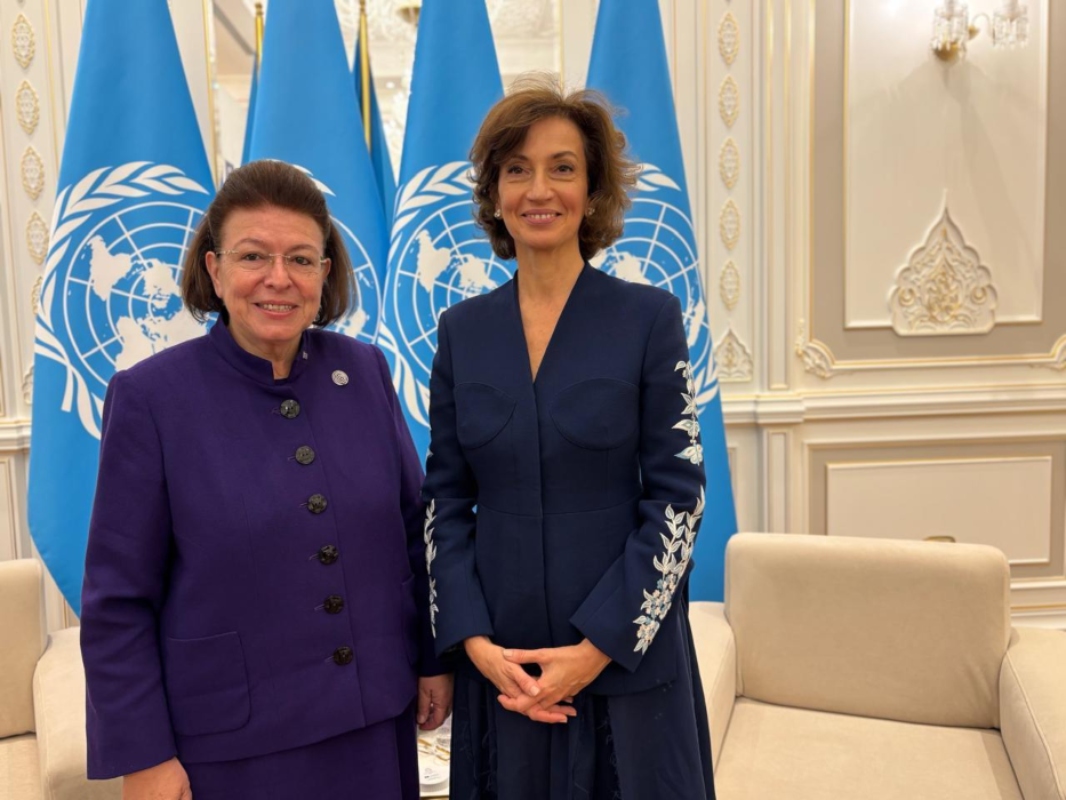Greece Reasserts Its Call for the Reunification of the Parthenon Sculptures
From the floor of the UNESCO General Assembly in Samarkand, Minister of Culture Lina Mendoni forcefully renewed Greece’s longstanding demand for the return and reunification of the Parthenon Sculptures.In a speech rich with symbolism, Minister Mendoni issued a direct appeal to all UNESCO member states, underlining that the Parthenon “is not merely a Greek monument but a global cultural symbol of democracy and artistic excellence.”
“Our position on the reunification of the Parthenon Sculptures remains steadfast. This is a unique artistic ensemble that must be displayed together at the Acropolis Museum in Athens,” she emphasized, adding that “the Parthenon, a symbol of Western civilization, must regain its integrity.”
A Global Call for Justice
Minister Mendoni’s intervention fits within Greece’s long-standing diplomatic campaign for the sculptures’ return, currently held in the British Museum since the 19th century. The issue, now gaining increasing international traction, is widely recognized as not only a national but a global cultural imperative, with UNESCO repeatedly urging the UK to engage in good-faith dialogue with Athens.
She stressed that the reunification of the Parthenon Sculptures is a matter of world cultural responsibility:“We call on all UNESCO member states to support this just and profoundly symbolic cause. It is not merely a matter for Greece but a responsibility for the global cultural conscience.”
Fighting Illegal Trafficking of Cultural Heritage
Minister Mendoni also highlighted the global threat of illicit trafficking in cultural property, noting Greece’s leadership in national and international initiatives:
- Publication of the Greek Red List of Cultural Goods, a preventive and awareness tool against illegal antiquities trade.
- Participation in UNESCO’s Virtual Museum of Stolen Cultural Goods, leveraging digital technology to reveal the scale of losses caused by cultural plundering.
“Cultural heritage is not a commodity. It is memory, identity, and the foundation of human civilization,” she declared.
Greece at the Forefront of World Heritage Protection
The Minister expressed satisfaction over the inscription of Minoan Palace Centers on the UNESCO World Heritage List, recognizing their “crucial contribution to Mediterranean and European cultural development.”She also presented Greece’s new nomination of Mount Olympus, describing it as “a natural and cultural landmark that combines unique biodiversity with the sacred dwelling of the twelve Olympian gods.”
Greece actively supports UNESCO’s Global Geoparks Programme, hosting nine geoparks, while promoting participation from underrepresented countries in Africa and Latin America.
Education at the Heart of Culture
Special emphasis was given to education and its connection with culture, with Greece advancing UNESCO’s Education 2030 Agenda. Through initiatives such as “Living Heritage” and the Green Education Partnership, Greece aims to foster environmental awareness, human rights, and active citizenship among students.
“Education is the most powerful tool to preserve and protect our cultural heritage,” Minister Mendoni stated.
Greek Language on the Global Cultural Map
A highlight of this year’s Assembly was the recognition of February 9th as the World Day of the Greek Language, warmly welcomed by the Greek delegation.“The celebration of the Greek language is, above all, a celebration of multilingualism and global cultural dialogue,” said Mendoni, thanking the countries that supported the initiative.
Renewed Leadership and Continuity in Cultural Diplomacy
Concluding her remarks, the Minister thanked outgoing UNESCO Director-General Audrey Azoulay and congratulated the new Director-General Khaled El-Enany, expressing confidence that he will “continue the steadfast defense of global cultural heritage.”
The Greek delegation includes, in addition to Lina Mendoni, Deputy Minister of Foreign Affairs Yannis Loverdos, Deputy Minister of Education Nikos Papaioannou, General Secretary Myra Mirigianni, and Ambassador George Koumoutsakos, Greece’s permanent representative to UNESCO.
Greece’s presence at this year’s UNESCO General Assembly is more than a cultural claim—it is a strategic move in international diplomacy.Mendoni’s speech did not merely demand the return of the Sculptures; it reframed the Greek issue within the global discourse of identity, justice, and culture.At a time when cultural diplomacy is increasingly influential, Greece reasserts itself as a force of values, knowledge, and dialogue, with the Parthenon standing once more as a beacon of unity and freedom.
Source: pagenews.gr
